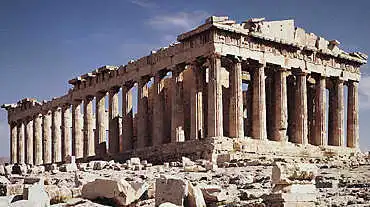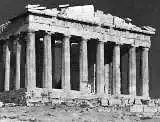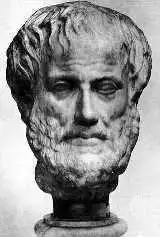Cosmos of the Ancients The Greek Philosophers on Myth and CosmologyDiagoras of Melos ot much more is known about Diagoras of Melos (for lack of any information on the matter, I estimate his year of flourishing to 400 BC, which should only be seen as an approximation), than that he was called atheist — probably not only in the meaning 'ungodly' of that word. Athenagoras said about him, that he "made the downright assertion that god does not exist at all." Cicero states the same about him.
ot much more is known about Diagoras of Melos (for lack of any information on the matter, I estimate his year of flourishing to 400 BC, which should only be seen as an approximation), than that he was called atheist — probably not only in the meaning 'ungodly' of that word. Athenagoras said about him, that he "made the downright assertion that god does not exist at all." Cicero states the same about him.
Cicero also tells of how a friend of Diagoras tried to convince him of the existence of the gods, by pointing out how many votive pictures tell about people being saved from storms at sea by "dint of vows to the gods", to which Diagoras replied that "there are nowhere any pictures of those who have been shipwrecked and drowned at sea." And Cicero goes on to give another example, where Diagoras was on a ship in hard weather, and the crew thought that they had brought it on themselves by taking this ungodly man onboard. He then wondered if the other boats out in the same storm also had a Diagoras onboard. According to Sextus Empiricus he became an atheist when an enemy of his perjured himself in court and got away with it. There are some variations in other sources to this anecdote, though not changing its moral content — immorality seems to go unpunished, so how can there be any gods in the sense of watchers over human virtue? He is said to have been a student of Democritus, who may have initiated his disbelief in the existence of the gods, and was expelled from Athens in 411 BC for his attacks on religion. Other sources claim that he was bought from slavery by Democritus in 411 BC, when Melos was captured by Alcibiades, and then became his student.
LiteratureBarnes, Jonathan, The Presocratic Philosophers, volume 2, London 1979.Cicero, De natura deorum, 1.2, translated by H. Rackham, Loeb, London 1979. Freeman, Kathleen, The Pre-Socratic Philosophers, Oxford 1946.
© Stefan Stenudd 2000

The Greek Philosophers
AristotleIntroductionAristotle's LifeTimelineAristotle's PoeticsAristotle's CosmologyAbout CookiesMy Other WebsitesCREATION MYTHSMyths in general and myths of creation in particular.
TAOISMThe wisdom of Taoism and the Tao Te Ching, its ancient source.
LIFE ENERGYAn encyclopedia of life energy concepts around the world.
QI ENERGY EXERCISESQi (also spelled chi or ki) explained, with exercises to increase it.
I CHINGThe ancient Chinese system of divination and free online reading.
TAROTTarot card meanings in divination and a free online spread.
ASTROLOGYThe complete horoscope chart and how to read it.
MY AMAZON PAGE
MY YOUTUBE AIKIDO
MY YOUTUBE ART
MY FACEBOOK
MY INSTAGRAM
MY TWITTER
STENUDD PÅ SVENSKA
|
 Cosmos of the Ancients
Cosmos of the Ancients